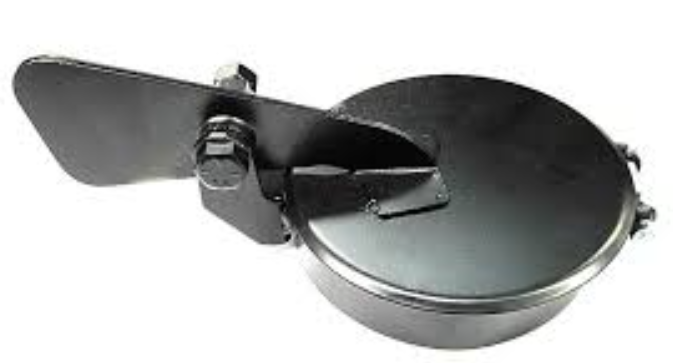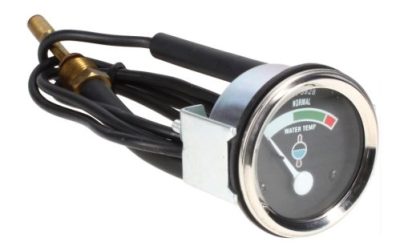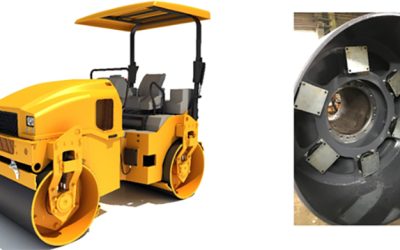The Hidden Impact of Exhaust Mufflers on Engine Performance
In the heavy equipment world, exhaust mufflers often work quietly in the background—yet their role extends far beyond reducing noise. Whether you’re operating bulldozers, excavators, wheel loaders, backhoe loaders, motor graders, marine engines, or generator sets, the muffler plays a surprisingly important part in overall engine performance and operator safety.
Understanding how this component functions can help maintenance teams make better decisions, avoid preventable failures, and keep machines running efficiently in demanding environments.
Why Exhaust Mufflers Matter
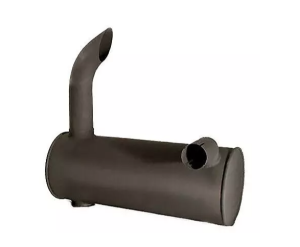 At a fundamental level, the muffler reduces engine noise and safely directs exhaust gases away from the operator and machine. It forms an essential part of the exhaust system, guiding combustion gases from the engine cylinders to the atmosphere.
At a fundamental level, the muffler reduces engine noise and safely directs exhaust gases away from the operator and machine. It forms an essential part of the exhaust system, guiding combustion gases from the engine cylinders to the atmosphere.
Performance and Protection
A properly functioning exhaust muffler contributes directly to the machine’s overall performance. Beyond noise control, it provides several key benefits:
- Helps maintain correct back pressure for efficient combustion
- Supports lower harmful emissions
- Protects nearby components from excessive heat and exhaust gases
When a muffler becomes blocked, corroded, or damaged, the effects can show up quickly:
- Reduced engine power or efficiency
- Increased fuel consumption
- Loud or irregular exhaust noise
- Overheating of components near the exhaust path
Routine inspections and timely replacement are essential for maintaining performance, reliability, and environmental compliance.
Don’t Overlook Associated Components
Servicing or replacing a muffler is an ideal time to inspect the entire exhaust assembly. Overlooking supporting components can lead to leaks, poor sealing, vibration issues, or shortened component life.
Common associated parts to check include:
- Exhaust inlet and outlet pipes
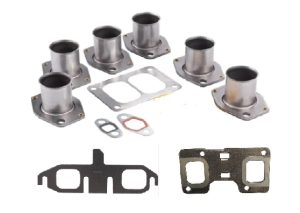
- Clamps and mounting brackets
- Exhaust gaskets and seals
- Exhaust bellows
- Heat shields or guards
- Rain caps—especially important for equipment stored outdoors
Each of these plays a role in ensuring proper exhaust flow and long-lasting durability.
Built for Heavy-Duty Conditions
Exhaust systems in heavy equipment are engineered to withstand high temperatures, vibration, and harsh environments. But despite their durability, mufflers experience wear over time and require periodic attention.
Keeping the muffler and related components in good condition supports:
- Reliable and efficient machine operation
- Safer working environments
- Compliance with emissions standards
- Longer engine life
For any operation relying on heavy machinery, understanding the hidden impact of exhaust mufflers is a simple yet effective way to improve performance and reduce downtime.
